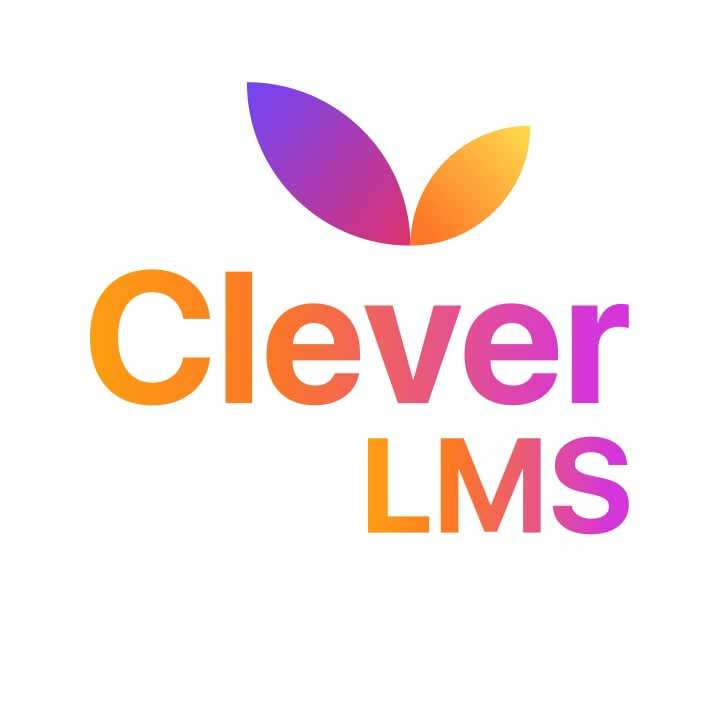It is possible to access a digital education platform on a variety of platforms and devices. These platforms are accessible through a variety of operating systems, including iOS, Android, and Windows, and are made to work with a wide range of gadgets, including laptops, tablets, and smartphones. This makes digital learning more accessible by giving instructors and students the freedom and convenience to access the platform from any location at any time.
List of 20 Best Digital Education Platform
Lens is a solution for taking your Zoom sessions to the next level. With Attentiveness and Engagement measurement, Leaderboards, QnA, and quizzes, Lens transforms mundane learning into an immersive and interactive experience. Keep your students engag...Read More Lens
VIPTutors.Co is a destination for top-quality academic tutoring and admissions coaching services. Our platform boasts a diverse team of over 1,500 highly qualified alumni from renowned universities like Harvard, Yale, Stanford, and more. Dont hesitat...Read More VIPTutors.Co
Bridge LMS - a learning management system designed to enhance employee development and growth. With its intuitive course creation tools, robust progress tracking capabilities, and engaging features for continuous learning and career progression, Brid...Read More Bridge LMS
Civitas Learnings Student Success Intelligence Platform, the preferred solution for over 400 higher education institutions seeking to enhance student success. By consolidating data from multiple sources, this robust tool accurately identifies student...Read More Civitas Learning
Chegg is a online platform designed to alleviate the financial burden on students, specifically when it comes to buying textbooks. With Chegg, students have the option to purchase, rent, or sell used textbooks at affordable prices, thereby saving the...Read More Chegg
CreativeLive is a online learning platform designed for creatives. Our extensive collection of video categories covers everything from sound design to Adobe Photoshop techniques, and even wedding photography. With the convenience of real-time Q&A and...Read More CreativeLive
Course Hero is a online learning platform that equips students for academic achievement and graduation. Students can access a diverse collection of courses and assessments, and supplement their studies with specialized resources from renowned univers...Read More Course Hero
Torsh is an advanced edtech platform focused on delivering top-notch education to students. Through its comprehensive range of professional development and coaching services, Torsh empowers teachers to improve their effectiveness and bridge the gap w...Read More Torsh
Newsela is an innovative digital platform featuring a wide range of nonfiction articles covering important social justice topics. With articles from reputable sources like The Washington Post and historical documents, it curates a diverse library of...Read More Newsela
Clixie AI is a tool for interactive training and engagement. Powered by innovative AI technology, our software creates easy-to-navigate chapters, quizzes, and detailed analytics in more than 35 languages. Ideal for both corporate and formal training,...Read More Clixie AI
Pluralsight is a technology skills platform that empowers individuals and teams to thrive in the rapidly evolving world of AI. Our platform offers personalized learning paths, hands-on labs, and practical insights to boost productivity and accelerate...Read More Pluralsight
Wise Proctor - the perfect tool for online exam proctoring. Our user-friendly platform prioritizes student privacy and ensures exam security. Theres no need for software installation when using Wise Proctor, making online exam administration a breeze...Read More Wise Proctor
Lexia English is a language learning software, designed to enhance English proficiency through personalized learning plans, real-time progress tracking, and engaging activities. It enables students to build confidence and competence in the language,...Read More Lexia English
News-O-Matic is a highly interactive educational tool aimed at igniting a love for nonfiction reading in students from Kindergarten to 8th grade. Our articles align with state and national standards and cover a range of subjects such as English langu...Read More News-O-Matic
CleverLMS is a enterprise solution for efficient employee engagement management. Our fully customizable mobile app is designed specifically for your organization, ensuring maximum productivity and success in any industry. Say goodbye to disengaged em...Read More CleverLMS
Duolingo is a e-learning platform that provides free language learning services. For those seeking an ad-free option, there is a premium version offered. As a globally acclaimed and certified program, Duolingo is trusted by millions of users worldwid...Read More Duolingo
Alison is a e-learning platform offering over 5,000 free courses across various industries such as IT, healthcare, business, and self-improvement. With accredited certifications and a convenient mobile app, Alison is committed to empowering millions...Read More Alison
GoGuardian - the premier learning management solution. Seamlessly manage and categorize your educational resources while utilizing cutting-edge AI technology for monitoring. Safeguard your files with anti-theft measures based on geographical location...Read More GoGuardian
our GPA Calculator is the ultimiate tool for effortlessly calculating your Grade Point Average. Just input your grades and credits, and our advanced calculator will instantly generate your cumulative GPA with accuracy. Say goodbye to tedious manual c...Read More GPA Calculator tool
NovoEd, a top-notch collaborative learning platform designed to enhance workforce development. It provides engaging cohort-based experiences, allowing organizations to easily expand their learning initiatives. With NovoEd, teams can acquire essential...Read More NovoEd
Learn More About Digital Education Platform
- What Is Digital Education Platform?
- What Are The Recent Trends In Digital Education Platform?
- Benefits Of Using Digital Education Platform
- Important Factors To Consider While Purchasing Digital Education Platform?
- What Are The Key Features To Look For In Digital Education Platform?
- Why Do Businesses Need Digital Education Platform?
- How Much Time Is Required To Implement Digital Education Platform?
- What Is The Level Of Customization Available In Digital Education Platform?
- Which Industries Can Benefit The Most From Digital Education Platform?
- Conclusion
What Is Digital Education Platform?
A software-based solution that makes it easier to deliver education online is called a digital education platform. It combines a number of tools and technology to give students an engaging and dynamic educational experience. In essence, it functions as an online classroom where students can access course materials, take part in discussions, and finish tasks.
Access to education at any time and from any location is one of the key benefits of a digital education platform. For programs including remote education and distance learning, this makes it the perfect option. Because students may access resources and tailor their learning path to suit their requirements and speed, it also provides a personalized learning experience.
Additionally, digital education platforms sometimes come with features like chat rooms, video conferencing, and collaborative tools that let students work in groups and have real-time conversations with their teachers and peers. This encourages critical thinking and problem-solving abilities as well as an active learning environment. A digital education platform is more affordable than traditional classroom-based instruction, according to buyers. It lowers costs for things like textbooks and printing and does away with the requirement for physical infrastructure.
It is also easily scalable, making it appropriate for all sizes of institutions. When selecting a Digital Education Platform, it is important to take into account a number of criteria, including device compatibility, degree of customisation, and ease of use. In the end, the ideal digital education platform will empower educators and learners, improve the educational process, and promote academic achievement.
What Are The Recent Trends In Digital Education Platform?
Digital education platforms have been fast changing along with the digital ecosystem. The market for digital education platforms has seen some interesting trends due to changes in learning methods and technological advancements. These developments not only address the demands of the education industry now, but they also provide insight into how digital education will develop in the future. Buyers should be aware of the following recent trends in digital education platforms:
1. Personalization: This is one of the biggest developments in digital learning environments. These systems can give individualized learning routes by analyzing data on students' learning preferences and behaviors with the use of artificial intelligence and machine learning. This enables students to learn in a manner that best meets their requirements and at their own speed.
2. Gamification: In recent years, gamification has become more and more common in digital learning environments. These systems increase student motivation and engagement by introducing game-like features like leaderboards, challenges, and awards.
3. Digital Education: Platforms are increasingly concentrating on offering a smooth mobile learning experience as a result of the rise in the use of mobile devices. This increases the flexibility and convenience of studying by enabling students to access course materials at any time and from any location.
4. Blended Learning: A prevalent trend in digital education platforms, blended learning combines traditional classroom instruction with online learning. It gives students a well-rounded educational experience by combining in-person interactions with teachers with self-paced online learning.
5. Virtual And Augmented Reality: To develop immersive learning experiences, digital education platforms are utilizing virtual and augmented reality technologies. Students can better interact with the material and visualize difficult ideas thanks to these tools.
6. Collaborative Learning: With tools like forums, video conferencing, and group projects, digital education platforms are also promoting collaborative learning. Peer learning is facilitated, and students are also better prepared for distant job settings.
7. Data Analytics: Digital education platforms can use data analytics to monitor students' development and give teachers information that helps them make well-informed judgments about how best to teach. Additionally, this makes it possible to identify and help failing pupils early on.
Benefits Of Using Digital Education Platform
The way we teach and learn has been completely transformed by digital education platforms. Traditional classroom settings are a thing of the past since digital learning platforms provide a wealth of advantages for both teachers and students. The many benefits of using a digital education platform and the reasons it is a necessary investment for any educational institution or individual student will be covered in this buyer's guide.
1. Flexibility And Accessibility: The flexibility and accessibility of digital learning platforms are two of its main advantages. As long as they have an internet connection, students can access lectures and course materials at any time and from any location when they participate in online learning. People who might not have the resources to attend regular programs can now access education because time and location restrictions are removed.
2. Personalized Learning: To meet the unique needs of every student, digital education platforms provide a personalized learning environment. Students can advance at their own speed using tools like tailored assessments and adaptive learning, which improves comprehension and memory of the subject matter. This enables teachers to modify their teaching strategies in accordance with the learning preferences of their pupils and offer focused assistance where required.
3. Diverse Content And Resources: Learning is made more dynamic and engaging by the wide range of multimedia content and resources offered by digital education platforms. Students can experiment with different teaching strategies and determine which ones work best for them, from gamified learning to movies and animations. Digital platforms also improve the learning experience by giving users access to a huge library of resources, e-books, and course materials.
4. Collaboration And Communication: Students and teachers can collaborate and communicate more easily thanks to digital education platforms. Forums, discussion boards, and live chat tools allow students to communicate with their teachers and one another, strengthening the learning process and creating a feeling of community. Additionally, it enables teachers to monitor students' progress, give timely comments, and quickly fix any issues.
5. Cost-Effective: Online learning via digital platforms is less expensive than traditional education. Since there is no need for tangible resources or facilities, educational institutions can drastically cut expenses, lowering the cost of education for students. People who choose online classes can also save money on lodging and transportation costs, which makes it a more economical choice.
Important Factors To Consider While Purchasing Digital Education Platform?
To make an informed choice, purchasers need take into account a number of crucial elements when searching for a digital education platform. These consist of:
1. Learning Needs And Goals: Your organization's or educational institution's unique learning needs and goals should be the first and most important consideration. Do you require a focused solution for a certain subject or talent, or are you searching for an all-inclusive platform to conduct online courses? Selecting a digital education platform that fits your learning objectives and demands will be made easier if you are aware of them.
2. Features And Functionality: The platform's features and functionality should be taken into account next. Look for features like tools for managing and creating courses, tools for grading and assessment, interactive learning exercises, and tools for teamwork and communication. In order to monitor progress and assess learning results, a quality digital education platform should also have analytics and reporting features.
3. User Experience: When investing in a digital education platform, the user experience is still another crucial consideration. Both teachers and students should find the platform easy to use and intuitive. For a smooth learning experience, it should also have responsive design and be available on a range of devices.
4. Scalability: Scalability is an important consideration if you plan to grow your online learning offerings in the future. Without sacrificing functionality or user experience, the platform should be able to accommodate an increasing number of students and courses.
5. Security And Data Privacy: Since the platform shares sensitive information, security and data privacy ought to be of utmost importance. Seek out services that provide frequent backups, robust encryption, and adherence to data protection laws such as GDPR.
6. Compatibility And Integration: A digital education platform should be compatible with your current tools and systems, including student information systems (SIS), content management systems (CMS), and learning management systems (LMS). Additionally, it ought to work with many operating systems and browsers.
7. Support And Training: When investing in a digital education platform, it's crucial to take into account a dependable support network and comprehensive training materials. To get the most out of a platform, look for ones that provide live chat, technical assistance, and educational resources. You can choose a digital education platform that best suits the objectives and requirements of your company by taking these things into account. Remember that the platform should be able to grow with your future needs for online learning in addition to meeting your present ones.
What Are The Key Features To Look For In Digital Education Platform?
To ensure that you are making an informed and successful purchase, there are a few essential things to consider when selecting a digital education platform. These elements are essential for simplifying your teaching process and assisting you in giving your pupils a dynamic and interesting learning experience.
1. Creation Of Interactive Material: Videos, animations, tests, and simulations are examples of interactive and multimedia-rich material that should be able to be created on the platform. With the help of this tool, teachers can provide individualized, interesting classes that accommodate various learning preferences.
2. Collaborative Learning Tools: To encourage peer engagement and a feeling of community among students, look for platforms that offer features like discussion boards, group projects, and real-time collaboration tools.
3. Customization Choices: To enable teachers to adapt the platform to the unique requirements of their pupils, a quality digital education platform should have customization choices. This could involve grading choices, course formats, and customized dashboards.
4. Learning Management System: One essential component of a digital learning platform is a learning management system (LMS). It makes it possible to communicate with students, track their progress, and organize and deliver course materials. To efficiently administer your courses, make sure the platform includes a strong and intuitive learning management system.
5. Mobile Compatibility: Having a digital education platform that works on mobile devices is essential given the growth of remote learning. This makes studying more flexible and easy by enabling students to access course materials and engage in activities from their cellphones or tablets.
6. Assessment And Analytics: To monitor student progress and pinpoint areas for development, look for systems with integrated assessment tools and analytics. Teachers can use this capability to make data-driven decisions and gain insightful knowledge.
7. Integration With Other Tools: Take into account a digital education platform that has the ability to interface with other programs and tools, like online libraries, video conferencing, and virtual classrooms. This can give pupils more resources and improve their entire educational experience. You may select an effective and user-friendly digital education platform that supports your teaching objectives and gives your students an interesting learning experience by taking into account these important qualities.
Why Do Businesses Need Digital Education Platform?
Businesses must continuously adapt and upskill their employees in the quickly changing business environment of today in order to remain competitive. Digital education tools are useful in this situation. Through a whole digital learning experience, these cutting-edge solutions give companies a potent way to train, educate, and grow their staff.
The increasing need for continuous learning is one of the primary drivers behind enterprises' desire for a digital education platform. Given how quickly industry, technology, and customer behavior are changing, employees must always remain up to date on the newest information and abilities. Businesses can use a digital education platform as a central location to provide their staff members a range of training programs, workshops, and courses at their own convenience and pace.
Additionally, a digital education platform provides companies with an affordable corporate training option. Conventional training techniques, like in-person lectures and workshops, may be expensive and time-consuming, particularly for big businesses with a global reach. Businesses can save time and money on planning and arranging training sessions by using a digital education platform, which also removes the need for travel and venue costs.
Scalability is another crucial advantage of a digital learning platform. Employees grow and flourish along with enterprises. Businesses may accommodate more employees without sacrificing the caliber of the learning process by using a digital education platform.
Businesses may make sure that their employees have access to a tailored and interesting learning experience by implementing elements like gamification, multilingual assistance, and configurable course content. Additionally, a digital education platform enables companies to monitor and assess the learning journeys of their staff members.
Comprehensive reporting and analytics tools give companies important information about how well their training initiatives are working. This allows businesses to solve any skill shortages in their workforce and enhance the learning experience by making data-driven decisions.
How Much Time Is Required To Implement Digital Education Platform?
A number of variables, including the institution's size, the platform's complexity, and the degree of customization necessary, can affect how long it takes to deploy a digital education platform. However, a complete deployment can take anywhere from two to six months on average. This covers the time needed for platform setup and planning, staff and student training, and platform customization to meet the unique requirements of the school.
Assessing your institution's needs and developing a thorough plan are the first steps in putting a digital education platform into place. Working with the platform provider to comprehend the capabilities and customization choices offered will usually take two to three weeks. The platform will be configured to your institution's requirements after the plan is finalized, which may take four to six weeks.
Setting aside two to three weeks for training is advised because it is an essential component of putting a digital education platform into use. Teachers, administrators, and IT personnel will receive training from the platform vendor on how to effectively use the platform. Students could also need instruction on how to properly browse and use the site. To make sure the platform is operating smoothly, testing and fine-tuning are conducted after the initial setup and training.
The supplier will fix any problems or make the required changes to further tailor the platform during this time, which could take up to two weeks. Therefore, the entire implementation of a digital education platform can take between two to six months.
This period of time can be reduced, though, by selecting a provider that offers user-friendly and adaptable platforms and by being well aware of the needs of your organization. Enough time must be set aside for planning, training, and testing in order to guarantee the digital education platform's effective deployment and seamless uptake.
What Is The Level Of Customization Available In Digital Education Platform?
Depending on the particular platform and its characteristics, different levels of customisation are offered by digital education platforms. To adapt the learning process to the particular requirements and preferences of teachers and students, the majority of platforms do, however, provide a significant degree of customisation. The capacity to design and assign students individualized learning paths is a crucial component of personalization in a digital education environment.
This makes differentiated instruction possible, allowing students to concentrate on certain areas of interest or need while working at their own pace. Furthermore, platforms could provide the ability to alter the platform's layout and style to better reflect the organization's or school's branding. The flexibility to add or remove modules and content to suit the aims and objectives of the curriculum is another crucial component of customization.
This makes it possible for teachers to customize the platform to the particular courses and themes they are teaching, guaranteeing that the information is pertinent and significant to their students. Custom assessments and assignments can also be created using certain digital education platforms, allowing teachers the freedom to design and mark tasks according to their own standards.
This can also involve giving students tailored feedback, which enables a more engaging and customized educational experience. Additionally, platforms could have the ability to interface with other software and tools for education, enabling a smooth and adaptable learning process. This can involve integrating with learning management systems (LMS) that are utilized by companies or schools, as well as importing content from other sources, including educational films or eBooks.a
Which Industries Can Benefit The Most From Digital Education Platform?
It is increasingly clear that conventional teaching approaches are insufficient as technology continues to change the world in which we live. This is the role of a digital education platform, which is a one-stop shop for all of your learning requirements and offers a smooth transition between technology and education. However, what sectors stand to gain the most from a digital education platform? The majority of them, in fact. A digital education platform has something to offer everyone, whether you are an enterprise trying to train your staff, a school or university trying to improve student learning, or an individual trying to improve your skills.
1. Corporate Sector: The corporate sector is one of the main sectors that stands to gain a great deal from a digital education platform. Businesses are always searching for methods to keep ahead of the competition due to the dynamic nature of the business environment. Businesses may provide convenient, effective, and economical staff training by using a digital education platform. A digital education platform provides a holistic solution for all business training needs, from upskilling current staff to onboarding new personnel.
2. Education Sector: One of the main sectors that can profit from a digital education platform is the educational sector, which includes schools, colleges, and universities. Students now have more options than just traditional classrooms because to the growth of e-learning. In addition to offering students a flexible and individualized learning approach, a digital education platform offers a contemporary and dynamic learning environment that can enhance conventional teaching techniques.
3. Healthcare Industry: Professionals in this field must keep up with the most recent developments and techniques because the healthcare industry is always changing. Healthcare workers can improve their knowledge and abilities without taking time away from their hectic schedules by using online courses, webinars, and other materials made available via a digital education platform.
4. Non-Profit Organizations: Digital education platforms can also help non-profit organizations spread awareness and educate their members, volunteers, and communities about their cause. These platforms give non-profits an affordable means of communicating with their supporters, holding workshops and training sessions, and sharing information.
5. Government Agencies: Public sector enterprises and government agencies can potentially benefit from digital education platforms. A Digital Education Platform can be a useful tool for these organizations to educate their staff and the general public, as the demand for digital literacy and training in a variety of disciplines continues to rise.
Conclusion
In summary, selecting the best digital education platform for your organization or educational institution is an important choice that needs to be carefully thought out. Selecting a platform that provides a thorough and engaging learning experience is crucial given the growing demand for online education. When assessing a digital education platform, the main things to consider are its features and functionalities, usability, device compatibility, and scalability.
The platform's cost and payment choices, as well as the degree of support and training it offers, should all be taken into account. Before reaching a decision, it is also crucial to include important stakeholders and carry out exhaustive research, trials, and demos. This will guarantee that the platform of choice satisfies the unique demands and specifications of your organization and is in line with your long-term objectives.
You can give your students, teachers, and staff a smooth and interesting learning experience if you have the appropriate digital education platform in place. Additionally, it can help you remain current with the newest educational innovations, track your progress, and streamline your administrative responsibilities.
All things considered, spending money on a trustworthy and superior digital education platform can significantly improve the teaching and learning process and eventually help your school succeed. Thus, give your options a thorough analysis and decide on a course of action that will benefit your organization for many years to come.
Digital Education Platform FAQ's
Can Digital Education Platform Be Accessed Across Multiple Devices And Platforms?
Is Digital Education Platform Future-Proof And Adaptable To Emerging Technologies Like Ai, Blockchain or Iot?
Indeed, digital education platforms are made to be flexible and future-proof, ready to adjust to new technologies like blockchain, artificial intelligence, and the Internet of Things. These platforms are always changing and adding new technology to improve students' educational experiences.
With capabilities like data analytics, interactive material, and personalized learning, digital education platforms are able to adapt to the rapidly evolving educational landscape and guarantee that students are ready for the challenges of the future.
Is There A Free Trial Offered To Assess Digital Education Platform Before Committing?
Indeed, a lot of digital learning platforms provide a free trial so that customers can evaluate the platform before deciding to buy or subscribe. This trial period usually lasts for a predetermined number of days or provides access to a subset of the platform's functionalities. Before making a choice, customers can examine the platform's capabilities, usability, and content quality with this excellent method.
Does Digital Education Platform Offer Data Security Features And Meet Regulatory Compliance Standards?
Indeed, the majority of trustworthy digital learning platforms adhere to legal requirements like the Children's Online Privacy Protection Act (COPPA) and the Family Educational Rights and Privacy Act (FERPA) and include data security safeguards.
These platforms undergo frequent security assessments to guarantee compliance and employ encryption technology to protect sensitive and private data. Parents and students can use these educational platforms with confidence knowing that their data is secure.
Can Digital Education Platform Integrate Seamlessly with Existing Tools And Platforms?
Indeed, the majority of digital learning platforms are made to easily interface with pre-existing tools and platforms. This makes it easier for you to integrate the digital platform into your present teaching strategies by facilitating a seamless transfer and interoperability with your current systems.
Digital education platforms may improve your current tools and platforms with a variety of features and customizable integration possibilities, giving teachers and students a thorough and effective learning experience.






















